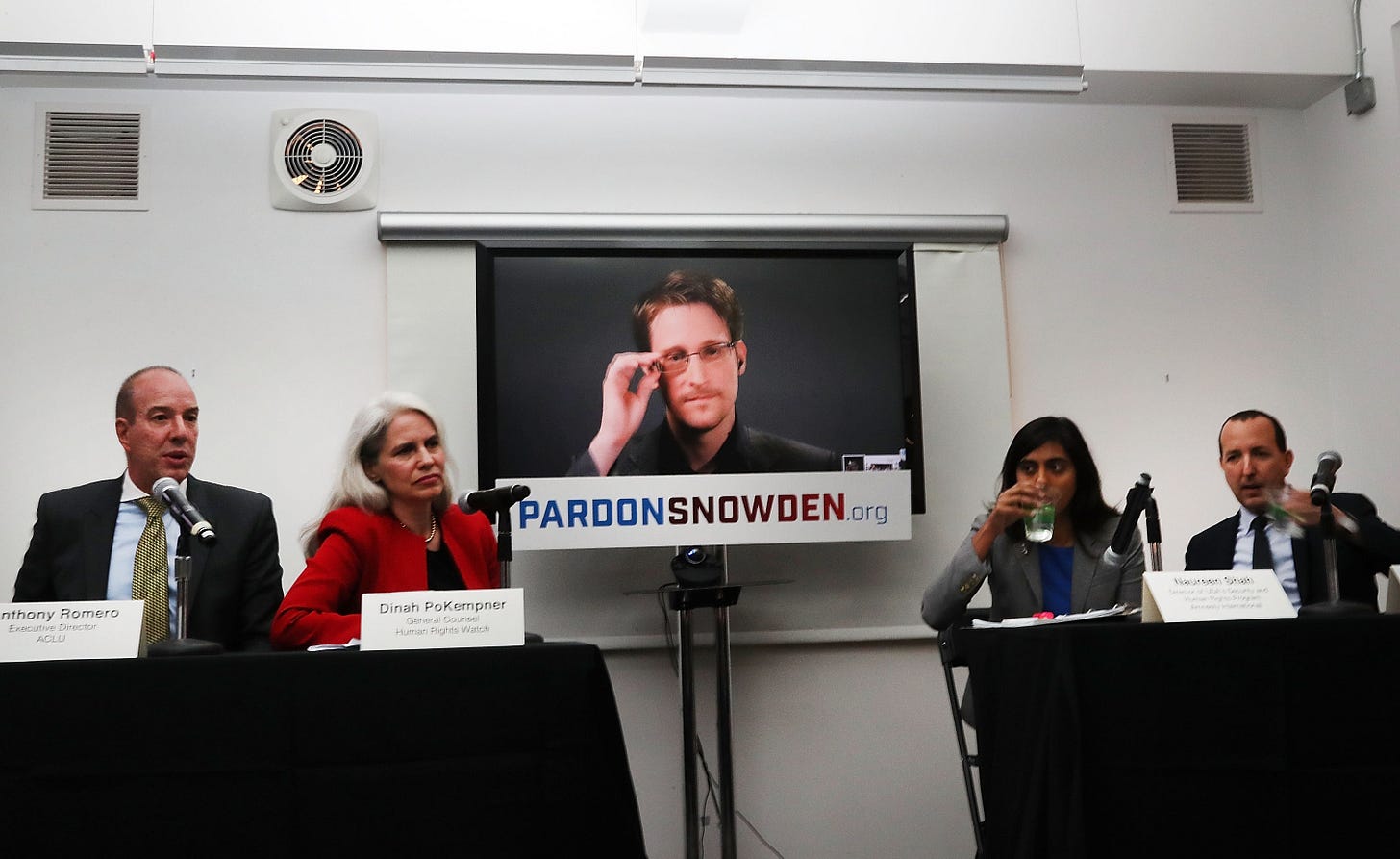
A U.S. appellate court in September unanimously ruled that the NSA’s program of mass domestic surveillance was illegal, as well as likely a violation of the Fourth Amendment’s guarantee against “unreasonable searches and seizures.” The court, and the broader public, knew about this illegal mass surveillance program created by the NSA only because Edward Snowden, while working inside that agency, discovered its existence and concluded in 2012 that the American public has the right know about what was being secretly done to them and their privacy by their own government.
Upon making the decision to blow the whistle on this security state illegality, Snowden delivered the documents relating to that program and other then-unknown systems of mass online surveillance not by dumping them indiscriminately on the internet or selling them or passing them to foreign governments, but by providing them to journalists (including myself) with The Guardian, The Washington Post and other news outlets. The documents Snowden provided were accompanied by requests to report them responsibly. He thus relinquished the power entirely to make decisions about which documents would and would not be published, leaving those decisions exclusively to news outlet.
That meant that Snowden himself never made a single document publicly available; every document that was reported was the result of decisions by newsrooms around the world that their publication would be in the public interest and would not endanger innocent people. That method of whistleblowing chosen by Snowden — patterned after the one Daniel Ellsberg used in 1971 to make the public aware of years of lying to the American public by the U.S. Government about the Vietnam War, when he gave the top-secret Pentagon Papers to The New York Times and asked them to report it in the public interest — enabled journalists to inform the American citizenry about illegal and unconstitutional spying by the U.S. Government in the most responsible manner possible.
Indeed, the very first program we reported — on June 6, 2013 — was the mass domestic spying program which the appellate court just ruled was illegal and likely a violation of the constitutional rights of all Americans. That first article we published revealed a top secret court order under which “the National Security Agency is currently collecting the telephone records of millions of US customers,” and required major telecommunications carriers “on an ‘ongoing, daily basis’ to give the NSA information on all telephone calls in its systems, both within the US and between the US and other countries.”
The months of reporting that followed, all singularly enabled by Snowden’s courageous whistleblowing, triggered so much vital public debate about privacy and mass surveillance, and fostered so many legal and technological privacy reforms around the world, that the reporting earned virtually every award journalism has to give, including the 2014 Pulitzer Prize for Public Service. For those who have not seen it, the 2014 documentary by Laura Poitras about the work Snowden did with journalists, Citizenfour, which received the 2015 Academy Award for Best Documentary, shows much of the Snowden story in real time and can be viewed on YouTube; the feature film “Snowden,” available on Netflix and other platforms, separately explores the trajectory which Snowden traversed from enlisted U.S. Army soldier, CIA contractor and NSA expert to one of this generation’s most consequential whistleblowers.